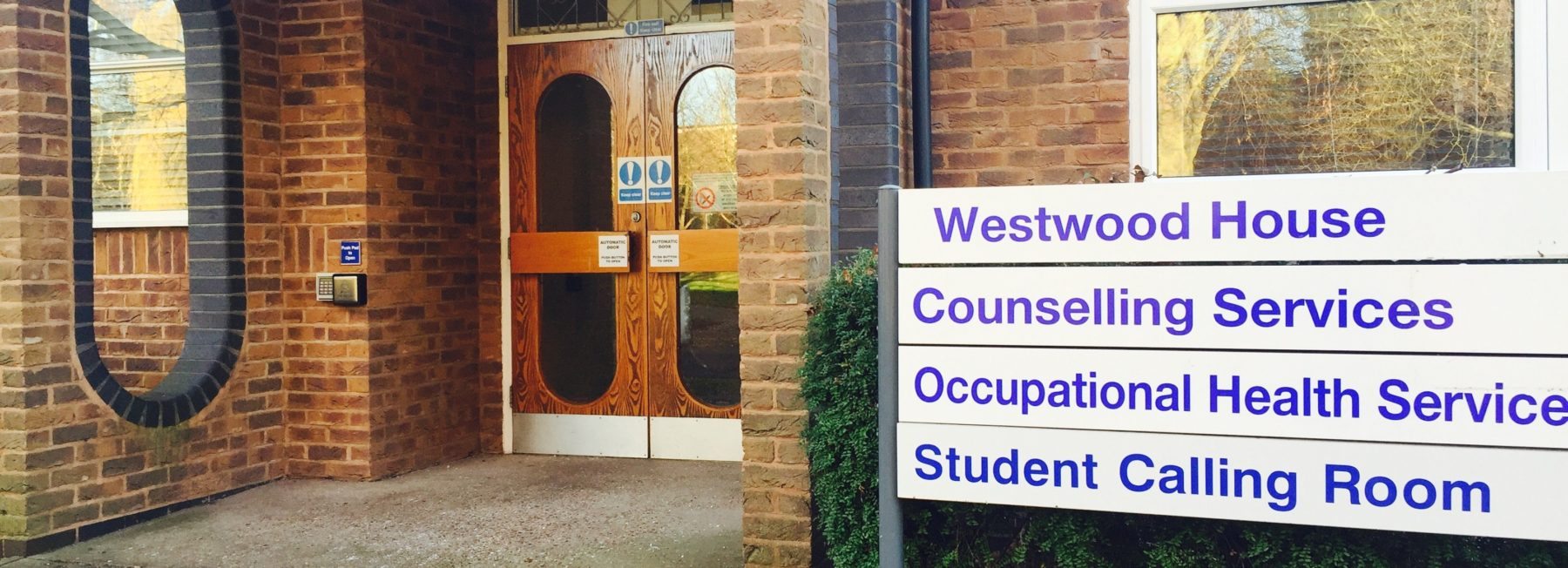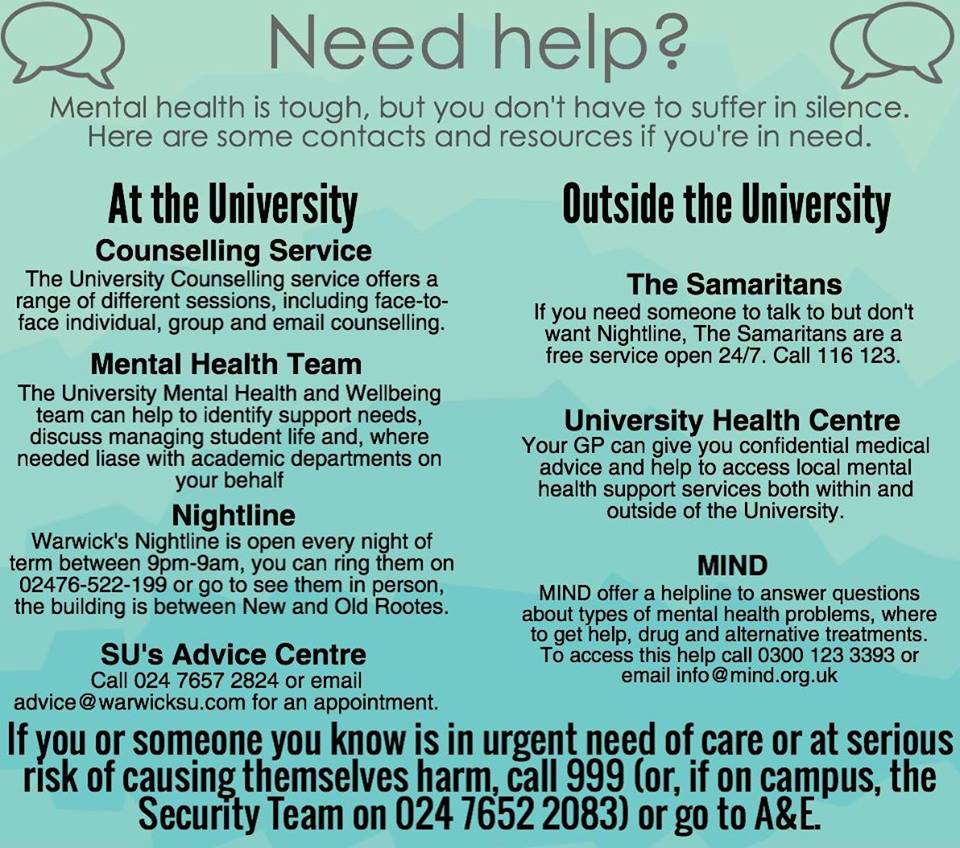Student Mental Health: Never feel ashamed to use the services available to you
Generally I consider myself a happy, healthy person. Overall I’m capable of dealing with the various stresses posed by young adult life and my degree (then again, I do study English and Film).
A level of emotional honesty has always been part of my vocabulary, and I’ve never shied away from telling others that my behaviour may be being influenced by a particular state of mind or emotion I’m experiencing. When I don’t feel able to drag myself out of a depressive state, I consider myself lucky to have a range of friends I feel able to talk openly with, and parents with whom I’ve always shared (almost) everything.
However, I believe I’m not alone in thinking that it can take any combination of obstacles, or sometimes none at all, to compromise the many ways we may have of dealing with or controlling our mental health. An ill-prepared essay, falling out with friends, financial pressure or indeed anything else can disturb even the most effective of methods we develop to regulate our happiness. In its funny way, poor mental health exacerbates itself by making our normal channels of support appear unviable or worse, a validation of our own suspected fragility and character flaws.
Friends and family can seem far away and to burden them weak and even selfish, as chances are their lives aren’t easy either.
Friends and family can seem far away and to burden them weak and even selfish, as chances are their lives aren’t easy either.
In my first year such a build-up happened: the change of surroundings, life-style, and a characteristically desolate Warwick campus on weekends triggered a longer than usual period of stress, negative thought cycles and isolation. For a variety of reasons not known even to me, I felt unable to confide or contact those I knew around me or back home. Time constraints meant I self-imposed limitations on sleep, exercise, leisure and mediation- essential activities that help me normalise but, in typical student fashion, were de-prioritised under stress as secondary to productivity.
I did, however, remember that the key to treating these feelings is always to share and externalise them. I booked an appointment with the Warwick counselling service which, although not as soon as I would’ve liked, was at least under the average time of 15 days.
As my mind would have it, by the time the date rolled around I had already begun to feel much more myself. Despite being frustrating at the time, I’m now grateful this mood change helped me to dispel the initial consternation that I was “being over-dramatic” and taking up the precious time of a under-funded service that should be used to help those who “really needed it”- thoughts that initially nearly stopped me going at all.
The session itself was more relaxed than I’d thought, marked by the movement from “what I am doing here” hesitance to fully answering a series of questions asked by the counsellor, on topics such as work stress, body-image, parents and relationships that helped the conversation become less and less one-sided. From her reassurances and suggestion that I needn’t make a follow up but could attend group sessions if I felt it necessary, I began to realise that I was neither a particularly ‘serious’ or stand-alone case.
In fact, the chair of Universities UK’s mental well-being group recently stated demand for University counselling services are seeing an annual rise of around 10%. Yet I wasn’t to of known this, as discussions about seeing counsellors or even dealing with particularly aggressive bouts of bad mental health still feel taboo in every social group – even my own, supportive as it is. I left feeling gob-smacked at myself for having attached so much weight and anticipation to something so straightforward and simple.
My whole-hearted advice is to use it should you ever feel the need – at the very least because for possibly the last time in your life, it’s free!
The experience helped me take away several things that I wanted to share in this article. Using the counselling services that almost every University provides, for free, with no requirements of a prior diagnosis of a mental health condition, had for me counter-intuitively become the epitome of a total and uncompromising judgement on my mental health. At the same time I’d felt a kind of guilt I never would’ve felt for a comparative issue with my physical health- was my concern ‘serious’ enough? Was I doing a disservice to people who had ‘real’ issues? The distance we’ve to go with mental health became evident in the way I’d never asked myself any of these questions after seeing a normal GP.
The stigma around mental health, especially in students, seems to work bilaterally. On the one hand we’re scared a trip to a counsellor confirms or validates our insecurities about mental health issues that we ironically lack the information to truly understand. Many of us fail to grasp the basic language surrounding mental health, largely because it has not been properly taught, especially the distinctions between mental disorders, mental health problems and poor wellbeing.
On the other, we fear that our condition isn’t severe enough to merit a waste of time and resources. In reality, nothing could be normal and therapeutic than discussing feelings and issues we’re often pressured to keep ‘private’ and ‘personal’ (whatever those mean) with a fully trained professional. Seeking counselling is never a waste of any resource if it helps you feel secure and informed about the state of your mental health.
My whole-hearted advice is to use it should you ever feel the need – at the very least because for possibly the last time in your life, it’s free!


Comments